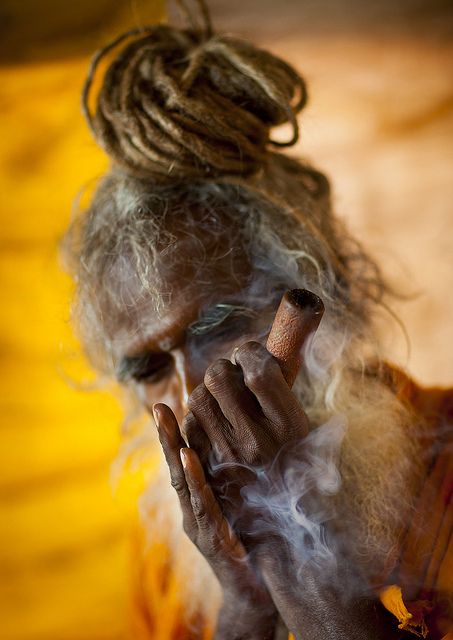Maha Kumbh Agori Babas: The Mystics of the Sacred Festival
Overview: Maha Kumbh Agori Babas
“5 Powerful Insights from Maha Kumbh Agori Babas That Will Inspire You” The Maha Kumbh Mela is one of the largest and most sacred spiritual gatherings in the world, held every 12 years in India. This grand event draws millions of pilgrims who come to take a dip in the holy rivers, seeking salvation and spiritual cleansing. Among the thousands of ascetics, sages, and devotees attending the Mela, the Agori Babas stand out as mysterious and revered figures.
Agori Babas are part of the Aghora tradition, a spiritual path that is often misunderstood by the general public. They are known for their unorthodox practices, which challenge societal norms and perceptions of spirituality. Despite their controversial image, Agori Babas play a significant role in the spiritual landscape of the Maha Kumbh Mela and Indian mysticism.
Maha Kumbh Agori Babas Tradition: History and Background
The Aghora tradition traces its origins to Lord Shiva, who is believed to have manifested as an Aghori to transcend the dualities of life and death. Aghoris are followers of Shiva and are committed to the path of extreme asceticism, aiming to achieve spiritual liberation by transcending the boundaries of good and evil. They practice their beliefs by confronting death, decay, and the darker aspects of life.
The Agori Babas of the Maha Kumbh Mela are part of this tradition, which advocates for the breaking of social norms and embracing a life free of attachment and illusion. While the public generally views their practices as radical, these Babas see their behavior as a means to understand the true nature of the universe, which is beyond the limitations of ordinary human perception.
Practices and Daily Life of Maha Kumbh Agori Babas
The daily life of an Agori Baba is unlike that of a typical ascetic. Agoris seek spiritual awakening through extreme forms of meditation, sadhana (spiritual practice), and self-mortification. They live in isolation or in small communities on the outskirts of major cities, often near holy places like the banks of the Ganges River during the Maha Kumbh Mela.
Some common practices of the Agori Babas include:
- Living with Death: Agori Babas are often seen meditating on cremation grounds or using human skulls (which they consider sacred) as part of their spiritual practices. They believe that confronting death directly helps them overcome fear and attachment, ultimately leading to spiritual enlightenment.
- Consumption of Unconventional Foods: One of the more controversial aspects of the Agori Baba’s life is their consumption of unconventional substances, including animal flesh, marijuana, and other items traditionally considered taboo. This practice is believed to help break the mind’s attachment to worldly pleasures and desires.
- Nakedness and Symbolic Purity: Agori Babas often live in a state of nudity, symbolizing their renunciation of worldly attachments. This represents their freedom from the constraints of societal norms and their focus on spiritual purity.
- Meditation and Mantras: Despite their extreme practices, Agori Babas engage in deep meditation and chant sacred mantras, seeking to connect with the divine essence within themselves. Their practices are focused on awakening higher consciousness and gaining a profound understanding of existence.
- Intense Asceticism: The Agori Baba’s life is marked by asceticism. They may practice fasting, self-discipline, and other severe forms of penance to purify their minds and bodies.
Significance of Agori Babas in Society and the Maha Kumbh Mela; Maha Kumbh Agori Babas
The presence of Agori Babas at the Maha Kumbh Mela is symbolic of their commitment to the most profound aspects of spirituality. They represent the idea that spiritual liberation cannot be attained through conventional means or societal approval. Their extreme asceticism is seen as a form of spiritual rebellion against the illusions of the material world.
The significance of Agori Babas in society can be viewed from several perspectives:
- Challenging Societal Norms: Agori Babas challenge the accepted norms of society by embracing practices that others find difficult to understand or accept. Their presence at the Maha Kumbh Mela serves as a reminder that spirituality transcends conventional expectations.
- Embodying the Spirit of Renunciation: In Indian spirituality, renunciation is considered a noble path. The Agori Babas, through their extreme ascetic practices, embody the idea of renouncing attachment, worldly desires, and ego to attain spiritual freedom.
- Teaching Detachment: By practicing detachment from worldly pleasures and material wealth, the Agori Babas emphasize the importance of living a life focused on spiritual goals. They teach others that true happiness comes not from external circumstances but from inner peace and self-realization.
- Symbol of Ultimate Freedom: Agori Babas represent ultimate freedom from societal constraints, embodying the idea that liberation is possible when an individual is no longer bound by the expectations of the world.
Observance and Rituals at the Maha Kumbh Mela; Maha Kumbh Agori Babas
During the Maha Kumbh Mela, Agori Babas participate in several rituals and spiritual practices, including:
- Sacred Bathing in the Ganges: Like many other pilgrims, Agori Babas take part in the ritual of bathing in the holy Ganges River during the Kumbh Mela. This act is believed to purify the body and soul and to wash away past sins.
- Holy Fire Rituals (Yagnas): Agori Babas engage in fire rituals (yagnas) to invoke blessings from the divine and to purify the atmosphere. The sacred fire symbolizes the divine presence and spiritual energy.
- Darshan (Blessings): Many pilgrims seek the blessing of the Agori Babas during the Maha Kumbh Mela. Despite their unconventional practices, Agori Babas are considered spiritually powerful figures who can bestow blessings and guidance on those seeking enlightenment.
Important Points about Maha Kumbh Agori Babas
- Connection with Lord Shiva: Agori Babas are dedicated followers of Lord Shiva, and their extreme practices are seen as a means of attaining divine realization.
- Radical Spirituality: The Agori Baba’s practices are considered radical and non-conventional, aiming to transcend societal norms and reach spiritual freedom.
- Role in Spiritual Festivals: Agori Babas play a vital role in the Maha Kumbh Mela, representing the deeper, more esoteric aspects of spirituality.
- Socially Controversial: The practices of Agori Babas often challenge societal taboos and are viewed as controversial by mainstream society.
- A Life of Extreme Renunciation: Their life is one of extreme renunciation, aimed at transcending the ego and worldly attachments to reach self-realization.
FAQs about Maha Kumbh Agori Babas
Q1: What is the significance of Agori Babas? Agori Babas represent extreme renunciation, detachment from worldly desires, and the pursuit of spiritual liberation through unconventional practices. They embody the idea that true spiritual freedom comes from transcending the limitations of society.
Q2: Why do Agori Babas live in cremation grounds? Agori Babas meditate and live in cremation grounds to confront the concept of death directly. By doing so, they aim to transcend the fear of mortality and to deepen their understanding of life and death.
Q3: Are Agori Babas dangerous? While their practices are often shocking and controversial, Agori Babas are not dangerous in the conventional sense. Their extreme asceticism is part of their spiritual path, though it may seem unsettling to outsiders.
Q4: How can I meet an Agori Baba? Agori Babas can typically be found at the Maha Kumbh Mela, where they gather with other spiritual seekers. However, meeting them requires approaching them with respect for their practices and beliefs.
Q5: What can we learn from Agori Babas? Agori Babas teach the importance of detachment, renunciation, and breaking free from societal constraints to achieve spiritual liberation. They remind us that spirituality is about transcending the ordinary and connecting with the divine within.
Conclusion: Maha Kumbh Agori Babas
The Maha Kumbh Agori Babas are a testament to the diversity and depth of Indian spirituality. Their practices, though unconventional and often misunderstood, offer profound lessons about renunciation, detachment, and the pursuit of spiritual freedom. While their way of life challenges societal norms, it is rooted in a deep quest for self-realization and understanding of the universe. Whether viewed with awe or skepticism, the Agori Babas are an integral part of the spiritual landscape of the Maha Kumbh Mela and continue to inspire those on the path of enlightenment.










